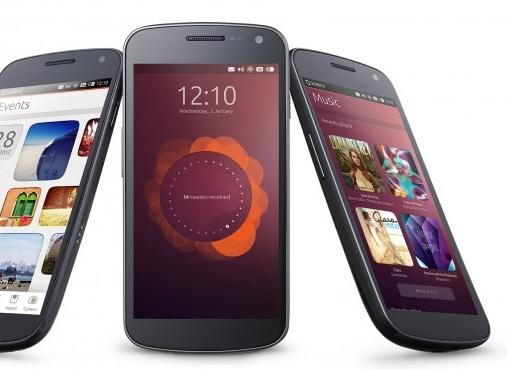
I’m sure many of you are aware of the dry spell we’ve been having lately regarding actual mobile phone news. Fortunately for us, today we’ve been blessed by the phone gods with a gift in the form of Ubuntu.
For those of you who are unfamiliar with the Ubuntu operating system, it’s free and open source software based on the Debian Linux distribution. The company behind Ubuntu, Canonical Ltd., commits themselves to the principles of free software development. They encourage aspiring developers to take this software, improve it, and redistribute it.
Ubuntu, from a desktop standpoint, was the first to develop an interface that was completely different from any other operating system available today. They made a simple way for web applications and desktop applications to come together as one, so there’s no hunting for applications. The operating system has integrated web search so you can search the web or your computer from one search bar. They’ve incorporated a lot of fixes for “problems” seen in other desktop operating systems like Windows and Mac, and of course they’ve got the added bonus that it’s free. Ubuntu is backed by many big-name manufacturers such as Dell, Lenovo, Asus, and now HP. Ubuntu has been developed for both personal use and for businesses and corporations.
In layman’s terms, Ubuntu is open source software that can be described as a “flavor” of Linux. It’s considered a very secure operating system, and one of the easiest to use due to its simple design. Now Canonical is planning on taking Ubuntu’s development a step further by incorporating the same interface that they’ve used in desktops and TVs for our own personal smartphones.
In the past we’ve heard about Ubuntu for Android, which was predicted to be released sometime in 2012 but we still have yet to see its official release. The news today actually doesn’t circulate around any release of Ubuntu for Android (or lack thereof) but around Ubuntu for Phones. Ubuntu for Phones is a variant of Ubuntu for smartphones, and is expected to be released sometime in 2014. The first version to become available is said to only be available to run on the Galaxy Nexus.
Ubuntu for Phones, to me, looks innovative. It looks fresh, beautiful, and simple. Canonical has taken the two of the most desired components of a smartphone – beauty and simplicity – and incorporated it into this open-source operating system that, I predict, will become a decent competitor in today’s market after gaining a following. Will it take off right away? Not likely. It’s a somewhat complicated idea that Ubuntu for Phone is, at the moment, not an actual piece of hardware at all, but an operating system substitute for those looking for something different. Coupling that with the new gestures required to maneuver around the operating system when many of us are comfortable with the way things are may take a while to warm up to.
Right now we’re all involved in a duopoly. You’ve got the voices of iOS and the voices of Android booming well over the volume of those speaking up on behalf of Windows Phone and BlackBerry OS. Ubuntu is something for us to look forward to regardless of what platform you currently use. My hope right now is that we can break away from the duopoly standpoint, and that Ubuntu doesn’t crumble like we’ve seen happen with other mobile operating systems such as webOS. I think I was one of the few that actually liked webOS and was sad to see it go. The main question now is how well can it actually expect to go without official hardware?
Maybe the trick to make this all work is for me to not like Ubuntu at all. Too late for that!
So readers, now that we’ve gotten news of this tall glass of water of an operating system, what are your thoughts on Ubuntu for Phones? Does it look like something you’re interested in trying out for yourself? I know it’s something I’m going to be keeping my eye on. Let me know what you think!